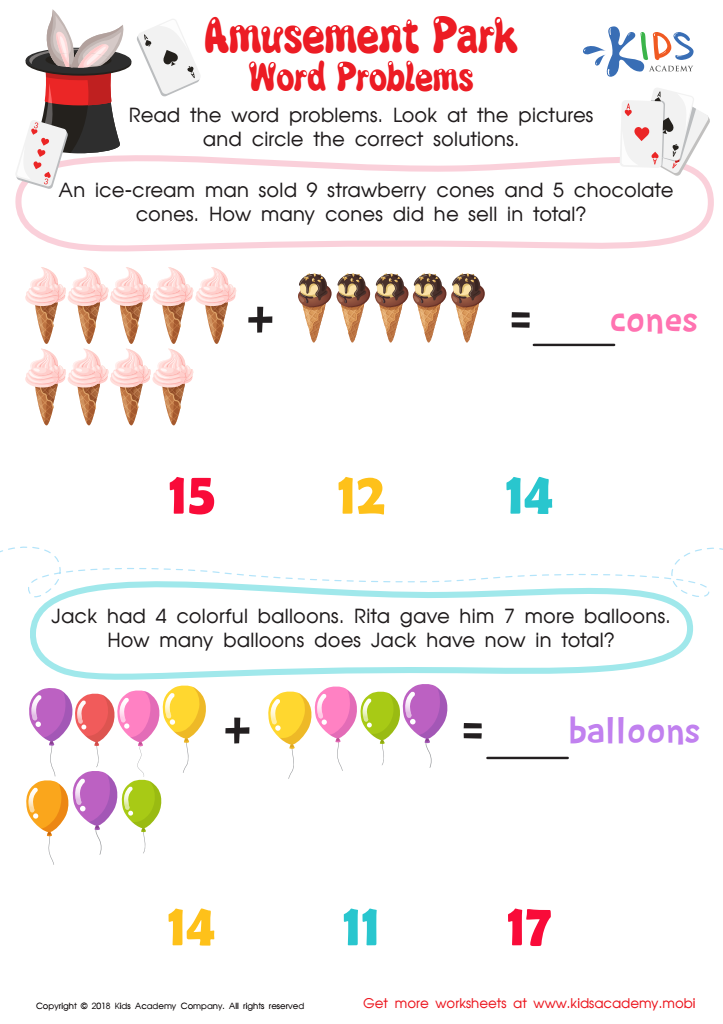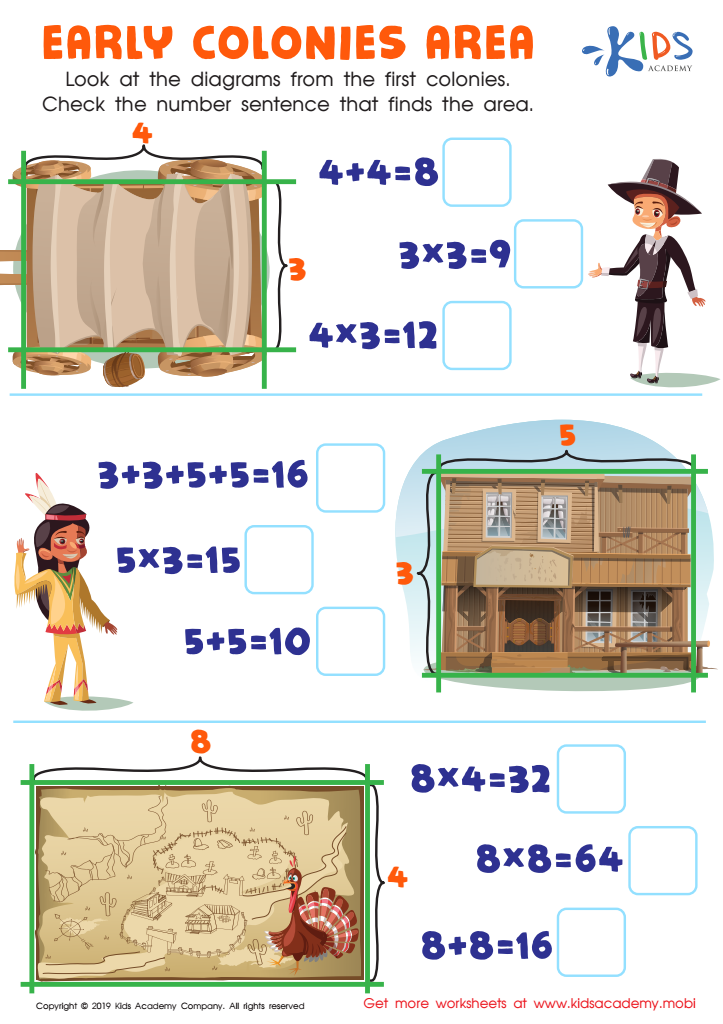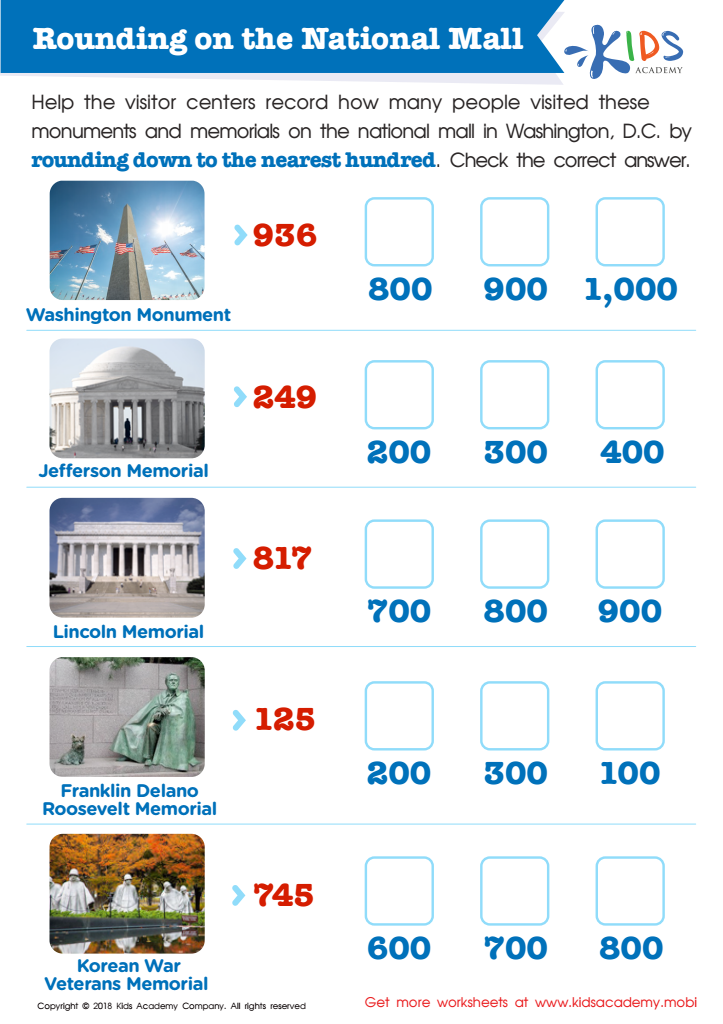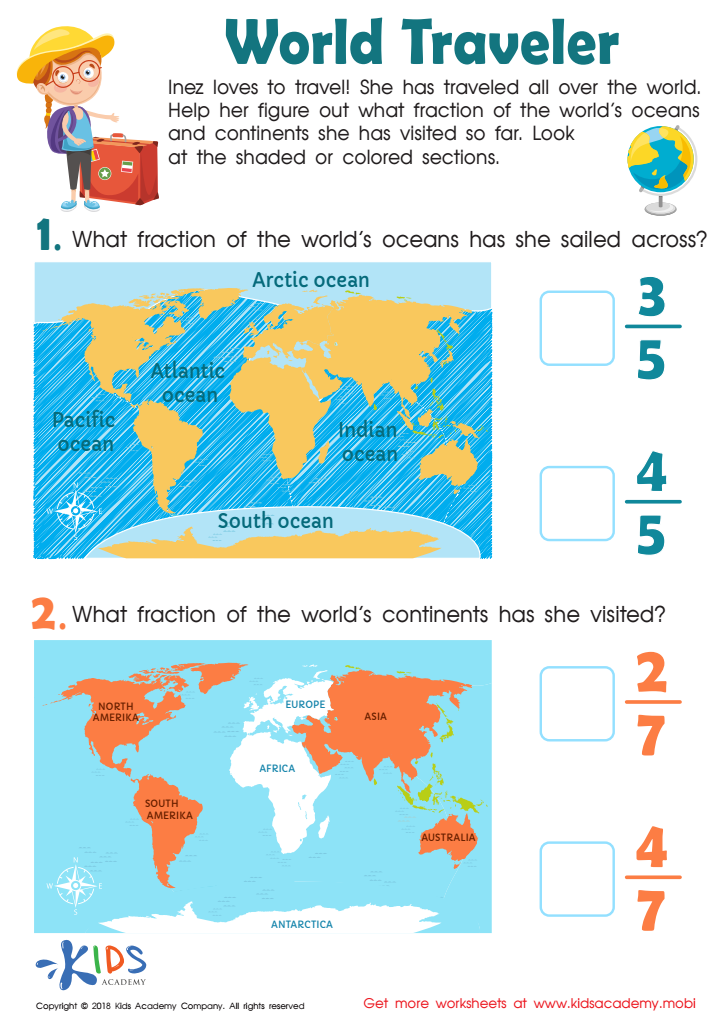Map reading skills Math Worksheets
5 filtered results
-
From - To
Enhance your child's mathematical understanding with our engaging Map Reading Skills Math Worksheets! Designed for early learners, these worksheets combine key math concepts with practical map-related activities. Students will develop essential skills such as interpreting scales, calculating distances, and understanding map symbols. By solving fun, interactive problems, they'll boost their spatial awareness and critical thinking abilities. Our curated resources foster hands-on learning, making complex ideas easy to grasp. Perfect for both classroom and home use, these worksheets cater to various learning styles, ensuring each child builds confidence and competence in math. Explore the world of maps while improving math skills today!


Amusement Park Word Problems Worksheet


Early Colonies Area Worksheet


Rounding on the National Mall Worksheet


World Traveler Worksheet
Map reading skills are essential components of early math education that parents and teachers should prioritize. Understanding maps involves recognizing spatial relationships, which enhances critical math skills such as geometry, measurement, and data interpretation. By developing mapping abilities, children learn to visualize concepts, resulting in improved problem-solving capabilities.
Furthermore, map reading promotes logical reasoning and analytical thinking, as students assess and interpret various geographic representations. These skills are foundational in numerous real-life applications, from understanding directions to grasping complex concepts like graphs and arrays in future math topics. Additionally, learning to read maps can encourage curiosity about the world, fostering an interest in geography and cultures.
Engaging children in map-related activities, such as treasure hunts or map creation, makes math fun and interactive, which can improve enthusiasm for the subject. Moreover, strong map reading skills prepare students for various standardized tests that often include spatial reasoning components.
Incorporating map reading into education enhances literacy as well; children develop the ability to read various symbols and scales, which is equally valuable. Both parents and teachers play a crucial role in nurturing these skills, as they set the groundwork for academic success and prepare students for real-world challenges.

 Assign to My Students
Assign to My Students

















